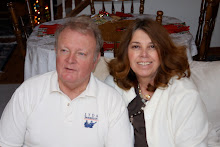Today the center of audience in discourse is difficult to dispute, as the field of rhetoric embraces "what Lynn Worsham terms our field's modernist commitment 'to the Enlightenment dreams of communication and consensus, emancipation and empowerment"in Lunsford and Ede'a article in the Miller text (820). This suggests the importance of expressing our goals, as well as how they are affected by the place of others, culture and institutions in creating communication to address and persuade an audience. As the writer moves to shape themselves within a rhetorical tradition, there is a call on our memories, identifications,experience and knowledge base, which Lunsford and Ede suggest, creates "a way of being in language and a way of both inhabiting and shaping knowledge structures, ways that strive to be critically self-reflective, multi-perspectival, and complex"(821). The authors in this second description of how writer's shape themselves, seem to be calling on Coleridge's philosophy derived from Plato, which Veeder describes as follows: "the purpose of the dialectic (and its social counterpart, dialogue) was to reconcile opposing views and to inform the composer rather than convince others of a preconceived truth" (24). The role of audience was not the issue-- it was convincing oneself as a writer of the rightness of their position that was important for Coleridge. [Coleridege apparently] "agreed with Plato's claim that the purpose of argumentation was to help the composer to be 'throughly convinced that things were so"and "was the required 'philosophical attitude' necessary for sound composition"(24).
However,the exploration of opposing viewpoints and multiple perspectives,in the development of our own compositional philosophy can contribute to a modern day writer who is more open to contradictions in shaping a philosophy embracing community and future unknowns. The audience might not only be in our thoughts to communicate with and persuade but to reflect in conjunction with that audience. When we engage in collaboration, "human conversation takes place within us as well as among us, and that conversation as it takes place within us is what we call reflective thought" according to Bruffee (548-549). He seems to be saying that our internal thought process and social learned information play equal roles in the development of learning and certainty of knowledge. In fact, he suggested that "The most sophisticated scientific knowledge is established and maintained" through a collaborative learning process, joining "'the conversation of mankind'"(555).
Today we have more access to global ideas through technology, as we reach out to our classmates worldwide. Through file sharing and other methods of sharing information, such as You Tube, the audience can participate not only in pre-writing idea sharing, but in revision and turning "writer based prose into reader based prose" in a 'public forum' (Eldred,246-247). So while Coleridge's ideas are intriguing, they seem to describing only a partial view of how the writer can go about developing their philosophy, more accurate in an pre-technology age.
Bruffee, Kenneth A. "Collaborative Learning and the 'Conversations of Mankind'". Miller, Susan, Ed. The Norton Book of Composition Studies. New York: W.W. Norton & Company, Inc., 2009. Print. 545-562.
Eldred, Janet M. "Pedagogy in the Computer-networked Classroom. Sidler, Michelle, Richard Morris and Elizabeth Overman Smith. Computers in the Composition Classroom: A Critical Sourcebook. Boston: Bedford/St. Martins, 2008. Print. 239-250.
Lunsford, Andrea A. and Lisa Ede. "Representing Audience: 'Successful' Discourse and Disciplinary Critique". Miller, Susan Ed. The Norton Book of Compositional Studies. New York: W.W. Norton & Company, Inc., 2009. Print. 813-823.
Veeder, Rex. "Coleridge's Philosophy of Composition: An Overview of a Romantic Rhetorician. [Class Handout] Print. 20-28.
Thursday, March 11, 2010
Subscribe to:
Post Comments (Atom)




No comments:
Post a Comment